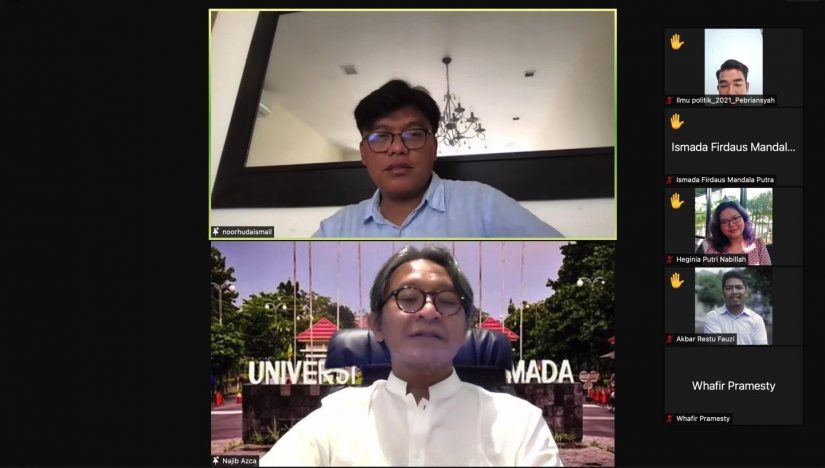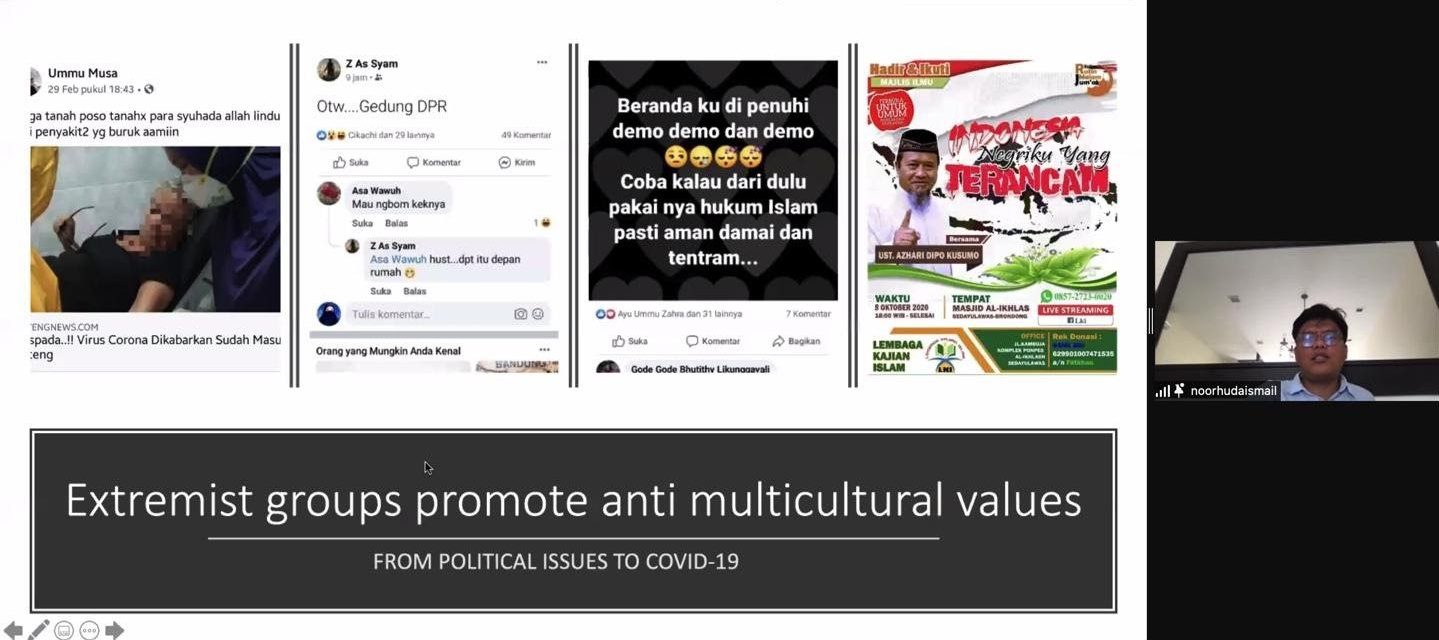
Yogyakarta, November 23rd 2021─The Department of Sociology of FISIPOL UGM held a Guest Lecture with the topic “Radicalization and Radicalism of Youth Diversity” on Tuesday (23/11). This lecture was taught by Dr. Noor Huda Ismail who is currently a Visiting Fellow of RSIS at Nanyang Technological University. The event which took place through the Zoom Meeting was attended by around 170 students. Talking about radicalization, actually joining a terrorist group is a process. Men and women experience different experiences when joined, including reasons for staying or leaving terrorism. Some want to look masculine by staying behind to defend oppressed Muslims. Some then return to their origins to open military camps and pass on their knowledge to the young people.
Huda explained that to become a terrorist, they first joined Islamic organizations to get encouragement. But now, with the existence of social media, it has shifted to become a connective action and not only connecting the Muslims who are members of terrorism. Huda said there are Christians in India and Buddhist groups in Myanmar which are also carrying out attacks and violence against Muslims.
Huda emphasized that through social media, anything becomes easy. “But the most important thing is that people don’t have to join the group first, just join through social media networks,” he said.
Furthermore, this extremist group moves against multiculturalism through political movements. Especially now that the issue of religion and political identity is so strong in Indonesia. For example, during the COVID-19 pandemic, extremist groups said that the incident was the result of not having Islamic law. Then, they note down various solutions to attract people into the institution.
In this regard, there are several things that need to be done to respond to these conditions. We need a transmedia intervention in various media, both online and offline. Then, the narratives must include collaboration and co-creation of alternative narratives beyond individual messages. In addition, it must also have accountability where the narrative that is made actually happens. The most important thing is to strengthen the role of a credible voice, such as people who have been involved and at some point want to start a new life.

“We encourage credible voices even though we cannot immediately (share stories). We train them how to speak in front of the media, we hold training to create content on social media so that dialogue occurs,” Huda said.
After the presentation of the material, Huda showed a film about radicalism entitled Seeking the Imam. The film has a gender perspective that narrates how a person joins a radical network with the experiences of men and women.
